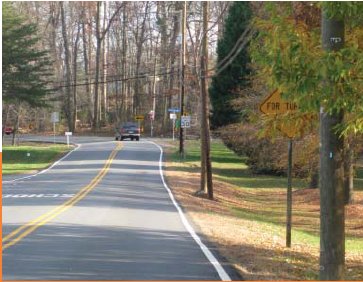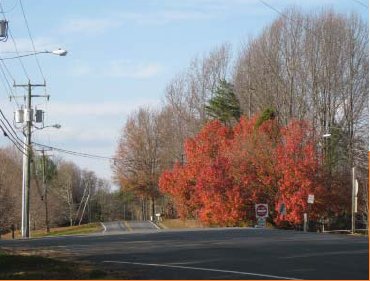FHWA Publication Number FHWA-SA-10-014
In order to reduce fatalities and serious injuries on our Nation’s road network, local and rural highway practitioners have to routinely integrate safety in their projects and programs. FHWA established Local & Rural Road Safety Peer-to-Peer Assistance as a form of technical assistance for local and rural highway agencies to adequately address safety problems on the roads they maintain. Experts with knowledge in various local and rural road safety issues volunteer their time to provide assistance to their peers requesting help. Whatever the safety issue your local agency is facing, there is a Peer ready and willing to help.

How Can Transportation Agencies Benefit from Peer Assistance?
The FHWA Peer network provides access to valuable guidance and information as well as input from people who share a similar background and have faced the same challenges. The list of benefits is long, but here are just a few that you can expect.
- Free and convenient access to professionals experienced with local and rural road safety.
- Expert assistance to recognize local and rural road safety issues and identify solutions.
- Increased understanding of how to improve safety on local and rural roads.

The biggest benefit of all is safer roads that result in a reduction in crashes ultimately saving lives, time and money.
What Types of Assistance does the P2P Program Offer?
Peer assistance can be in the form of phone calls, email exchanges, general instruction or site visits; all depending on your agency needs.

How to Get Peer Assistance
The first step to using the P2P Program is to let us know you need assistance. There are several ways to reach us; you can call, email, send us a note by fax, or apply online. Whichever method you use, an FHWA sponsored P2P Coordinator will be ready to assist. The coordinator will determine your specific question or issue and match you with the best Peer for your case.
CONTACT
Roadway Safety P2P Hotline (866) P2P-FHWA
Fax (877) 663-2263
SafetyP2P@dot.gov
P2P Request Form
|
"Rural road safety is a particular concern in the United States. In 2007, 57% of traffic fatalities occurred on rural roads and the fatality rate per 100 million vehicle miles traveled was 2.5 times higher in rural areas than in urban areas. Over 70% of the 3 million miles of rural roads are owned and operated by local entities. These owners should have access to road safety information, knowledge and resources needed to address their issues." — John Dewar, |
Local and rural roads assistance provided by the P2P Program:
- How to analyze crash data and determine locations needing immediate attention..
- Low cost safety improvements that can be installed quickly.
- Various funding options available for safety improvements on local and rural roads.
FHWA resources for local rural roads safety improvement: https://www.highways.dot.gov/safety/other/local-rural
Contact FHWA for More Information
Rosemarie Anderson
Local & Rural Roads Program
Office of Safety
Federal Highway Administration
(202) 366-5007
rosemarie.anderson@dot.gov

Page last modified on June 17, 2011
